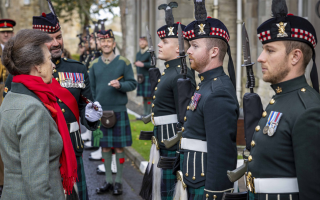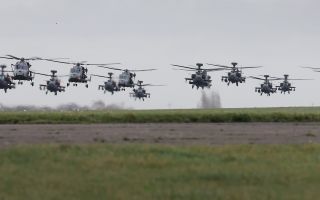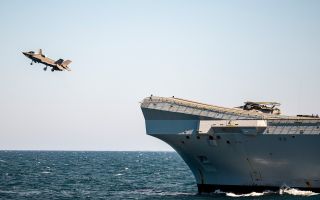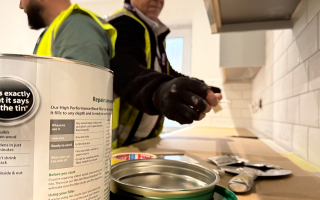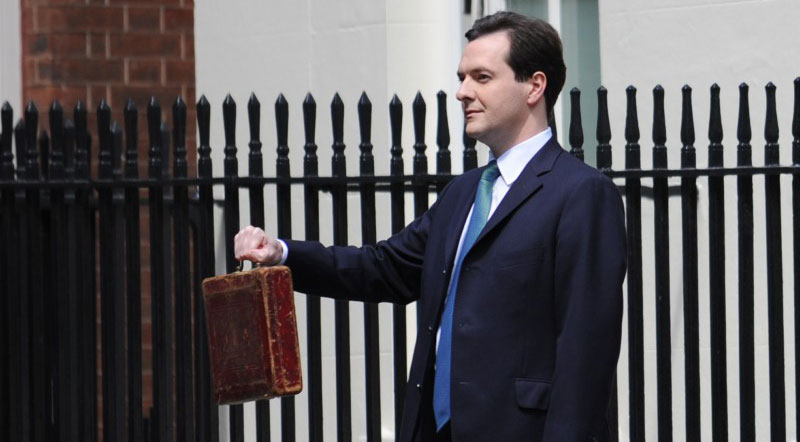
Tri-Service
"Creative Accounting" Used To Meet NATO Target, MPs Claim

Ministers have only been able to meet the NATO target on defence spending by "modifying" government accounting practices, MPs have said.
The Commons Defence Committee said the inclusion of items such as more than £1 billion of pension payments left the government open to charges of "creative accounting". It said:
"We note that the NATO minimum would not have been fulfilled if UK accounting practices had not been modified, albeit in ways permitted by NATO guidelines."
"The only way that the Ministry of Defence can refute claims of 'creative accounting' is to outline, clearly and unambiguously, what the new inclusions are, how much they constitute, and from which department each was previously funded."
Chancellor George Osborne announced Britain would continue to meet the politically-sensitive NATO target of spending a minimum of 2% of GDP on defence in last year's summer budget.
However, the committee said ministers had had to include measures such as intelligence-gathering and war pensions - which were not previously counted as defence spending - in order to make the figures add up.

The way Britain reached the NATO target has come into question
While the changes were in line with NATO guidelines, the committee warned that this "redefinition" to some extent undermined the government's claims that the 2% figure represented a significant increase in defence spending.
The Commons Defence Committee quoted Professor Malcolm Chalmers, deputy director of the Royal United Services Institute, who in a 2015 briefing paper identified four items that had not been previously included by the UK in defence spending calculations:
- Contributions to UN peacekeeping missions
- War pensions
- Pensions for retired civilian Ministry of Defence personnel
- Ministry of Defence (MoD) income
Professor Chalmers suggested that these four areas accounted for an extra £2.2 billion in defence spending for 2015/16 - enough to lift the budget from its original projection of 1.97% GDP to 2.08% GDP.
The committee also called on ministers to explain how they would continue to meet the 2% target for the rest of the parliament given the pressures from pay and fact that this year's total included a number of one-off items which would not be repeated in future years.
It warned that while the 2% figure was valuable as a "political statement" of the UK's commitment to defence, it did not guarantee that the country would have the resources it needed to protect itself from the various threats to British and NATO security. It said:
"We remain to be convinced that the current financial settlement is sufficient to rectify the decline of defence as a national priority."
"The government must be clear that 2% is a minimum - not a target - and be prepared to increase defence expenditure further in order to reflect the increasing threats faced by both the UK and our allies."
The committee chairman Julian Lewis said:
"It's good news that we have managed to achieve the 2% promise for defence spending but if the MoD has only achieved this by including things like war pensions or intelligence-gathering which previously came under other budgets, you wonder what effective, battle-winning spending increases have actually been made.
"The MoD have shed insufficient light on this confusion."
A MoD statement, meanwhile, said:
"The Committee’s own report confirms that all UK spending on defence including intelligence, cyber and war pensions falls firmly within NATO’s guidelines.
"When defence spending will increase by £5 billion over this parliament, it is nonsense to suggest there is no new funding."
"Our plans will deliver more ships, more planes, more troops at readiness, better equipment for special forces, and more on cyber to help keep Britain safe."
"After the crippling cuts to the Armed Forces imposed by the Tories throughout the last parliament, we were promised that 2015 would mark a turning point. Instead, it's increasingly clear that the 2% commitment is being delivered not through increases in frontline defence spending but by fiddling the books."
"Time and again on defence, the Tories are shown to be all rhetoric and no reality, and it is our Armed Forces who are paying the price."

